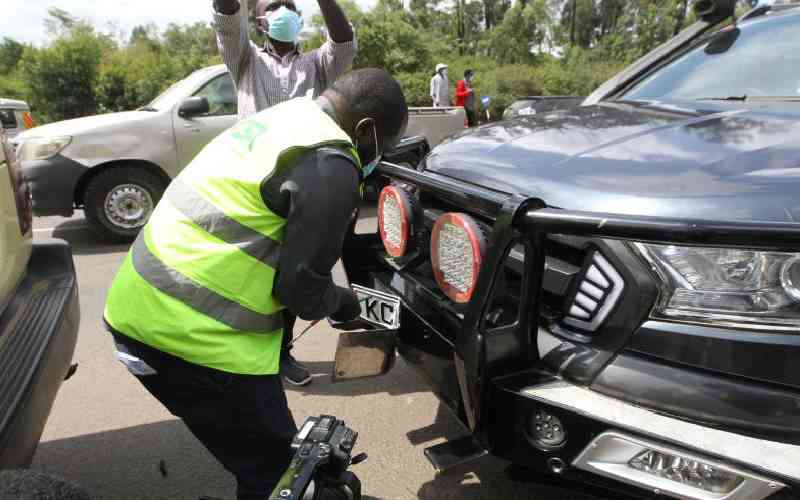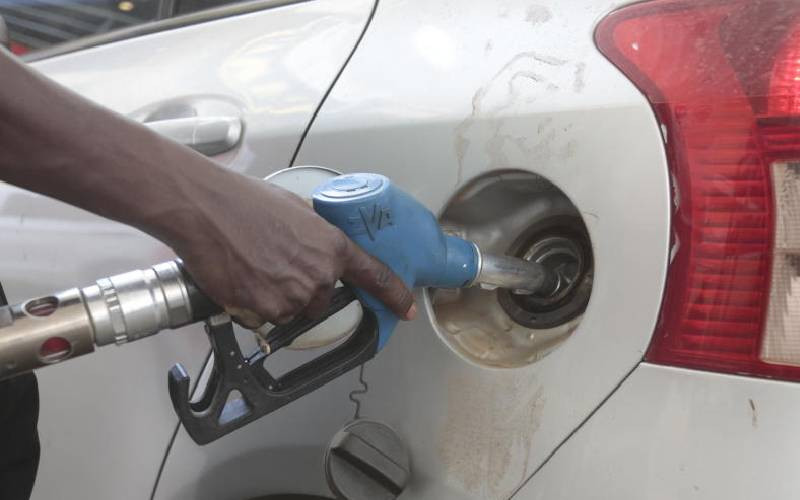
Several years ago, I would drive back home late, after inevitable nocturnal excursions in upper Nairobi. On those nights we learned how to hold webinars and conferences online way before Covid-19.
Those were the days of blockchain, bitcoin and the other attendant cryptocurrencies. As I made my ascent towards City Stadium after DT Dobie, I would almost assuredly find a seemingly oncoming truck heading directly in my direction, with the lights off.
Only my quick wit helped me discern the rearward-facing truck being towed away. In most cases, there was always a bloke inside. The tow truck was always a worn-out, creaky and beat-up Landover 109 series whose operators invariably were dubious chaps.
The towed vehicle faced the other way and the hind wheels were off the ground, its front tires screeching relentlessly. A lot of damage was occasioned by this. This unorthodox method is no way to run affairs. Looking back, I can’t help reflecting on this symbolically regarding many life situations and circumstances. I ask myself, in life am I the tow truck or am I being towed? Is either of them a choice I could countenance espousing? And the resounding answer is, no! During those overexcited cryptocurrency escapades of mine I feel I was being towed in blindfold.
But then I look at the situation in our country Kenya and can’t fail to draw some parallels. Which of the two contraptions is Kenya, and is it even a situation worth imagining? Are we being towed or are we towing? Who is towing us, and vice-versa?
Metaphorically, I reckon we are not merely settled in one vehicle but keep shuttling between the two jalopies, as they hurtle in the dark into the unknown, while joined at the hip like Siamese twins.
At one point we are in the lead truck with all the confusion and cacophony of the politics. Each political leader competes for their voice to carry the day. Not to be outdone, foot soldiers shout out of turn, and the deafening confusion in the country squelches any smattering of hope for the people. The fact that things are falling apart all around is greatly discomfiting.
Before long we are thrust into the towed and malfunctional contraption. Like the lonesome character inside looking in the opposite direction, we are alone and cold. Even the windows can’t close to shield us from the chilly draught.
There is no vitality as the engine of life is out and cold. All hope is gone, and we are destitute. Even the help we are getting is so undignified that we are made to travel facing the rear so as not to know the way. Our only grip on things is the screeching, worn-out tyres below us. Our sovereignty, the only claim to hope, is in the hands of dastardly merchants.
In his book, ‘Strings Attached: A Nations Dilemma of Sovereignty in the Donor’s Grip,’ John Smith avers that ‘surrendering sovereignty to donors is akin to trading the compass of national interest for the chains of foreign influence.’
But alas, there is a third vehicle. The one driven by the onlooker who only has a fleeting glimpse of this unfortunate drama as he overtakes and swooshes past. He hopes this type of malady doesn’t visit him. His is a comfortable little blessing with all the auxiliaries and ancillaries functional. Little wonder he could stay out late in the blessed assurance that he will get home safe.
Is he a wily businessman who has spotted an opportunity to invest in a better tow-truck? Or is he a foreign donor or investor who has spotted a miserable country, to invest in or plunder?
‘In the shackles of donor dependency, sovereignty becomes a mere illusion, a hostage to the strings attached to every aid dollar’- Author unknown.
The lack of stability in the rate at which we are jumping from ‘tow’ to ‘towed’ is more disconcerting than this misadventure.
Stay informed. Subscribe to our newsletter
So, the best diagnosis is to just stop. We need to be still and take stock. At least we are guaranteed safety while stationary. That way there is hope for tomorrow. All we want is to get home safe. Is that too much to ask?
 The Standard Group Plc is a
multi-media organization with investments in media platforms spanning newspaper
print operations, television, radio broadcasting, digital and online services. The
Standard Group is recognized as a leading multi-media house in Kenya with a key
influence in matters of national and international interest.
The Standard Group Plc is a
multi-media organization with investments in media platforms spanning newspaper
print operations, television, radio broadcasting, digital and online services. The
Standard Group is recognized as a leading multi-media house in Kenya with a key
influence in matters of national and international interest.
 The Standard Group Plc is a
multi-media organization with investments in media platforms spanning newspaper
print operations, television, radio broadcasting, digital and online services. The
Standard Group is recognized as a leading multi-media house in Kenya with a key
influence in matters of national and international interest.
The Standard Group Plc is a
multi-media organization with investments in media platforms spanning newspaper
print operations, television, radio broadcasting, digital and online services. The
Standard Group is recognized as a leading multi-media house in Kenya with a key
influence in matters of national and international interest.









